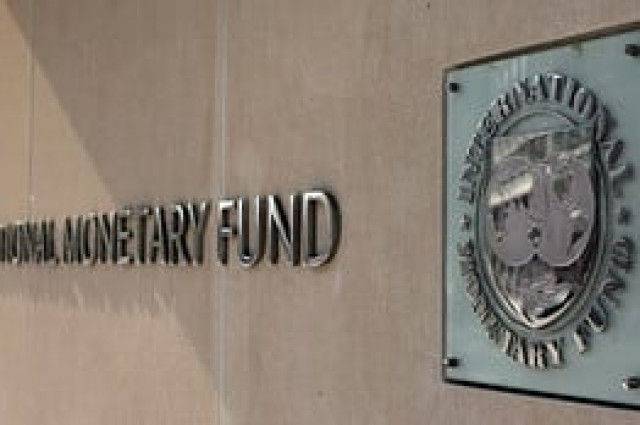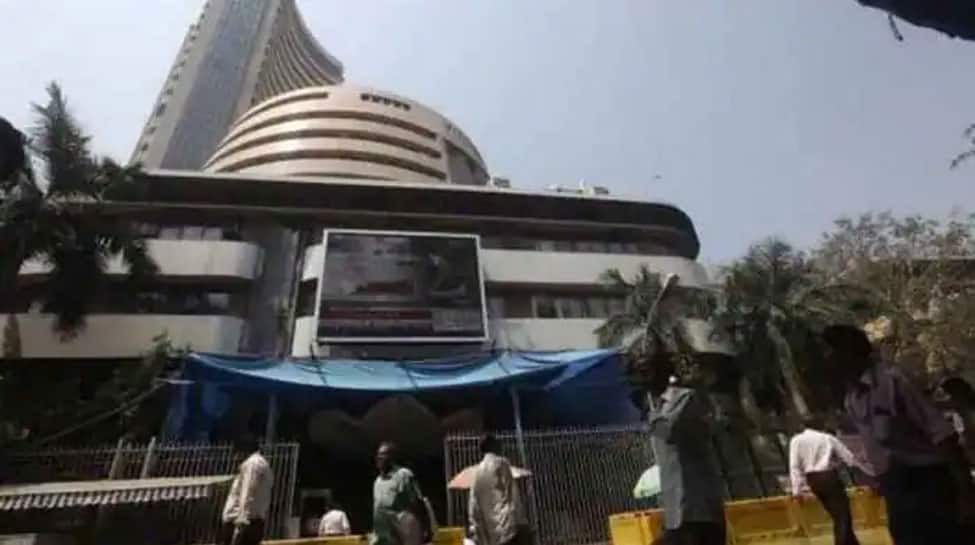Business
IMF seeks Pakistan’s plan to reduce power theft, losses amid bailout review | The Express Tribune

The International Monetary Fund has asked Pakistan to submit detailed proposals aimed at curbing electricity theft, reducing line losses, and cutting capacity charges, as talks between the two sides continue under the second economic review of the ongoing bailout programme.
The discussions are part of efforts to secure the release of a $1 billion tranche under the Extended Fund Facility (EFF) and an additional $220 million under the Resilience and Sustainability Facility (RSF).
Sources told Express Tribune that the International Monetary Fund (IMF) also demanded clarity from the federal government regarding the shortfall in provincial surplus targets, which stood at Rs921 billion against a target of Rs1,200 billion for the fiscal year. Punjab posted a surplus of Rs348 billion, Sindh Rs283 billion, Khyber-Pakhtunkhwa (K-P) Rs176 billion, and Balochistan Rs114 billion. The K-P government is expected to brief the IMF separately between September 29 and October 1.
Read More: Pakistan tells IMF it will miss tax goal
The development comes as Pakistan informed the IMF on Friday that it is unlikely to meet the Rs3.1 trillion tax collection target for the current quarter, according to briefings by tax authorities.
In a separate meeting, officials from the Power Division briefed the visiting IMF mission on the status of energy sector reforms. The Fund reportedly expressed concerns over inefficiencies, including high system losses and expensive capacity payments made to underutilised power plants.
To address these issues, the federal government assured the IMF that it plans to eliminate the circular debt ahead of the six-year deadline previously agreed. Authorities claimed that the stock of circular debt has already been reduced to Rs397 billion, down from earlier projections of Rs635 billion. They added that consumers would not face an additional burden, as payments would continue through an existing surcharge of Rs3.23 per unit.
Also Read: FBR removes ‘estimated market value’ column from 2025 tax return form
The Fund was also updated on ongoing negotiations with independent power producers (IPPs) and the privatisation process of three profitable electricity distribution companies. The government shared plans to utilise surplus electricity for industrial consumption and cryptocurrency mining, while reaffirming its commitment to transferring control of loss-making entities to the private sector.
The briefing further covered plans to restructure Rs660 billion in legacy debt and raise Rs565 billion in new financing as part of the upcoming loan package. Officials expressed optimism that the measures would help stabilise the energy sector and restore investor confidence.
Business
Video: The Hidden Number Driving U.S. Job Growth

new video loaded: The Hidden Number Driving U.S. Job Growth
By Ben Casselman, Christina Thornell, Christina Shaman, June Kim and Nikolay Nikolov
February 13, 2026
Business
Sensex, Nifty decline over 1% amid heavy selling in IT stocks

Mumbai: The Indian stock market on Friday closed in the red as the benchmark indices Sensex and Nifty declined over 1 per cent. The indices were dragged by heavy selling in information technology (IT) shares.
Sensex crashed 1.25%, or 1048 points to end at 82,626.76, while the Nifty 50 dropped by 1.30% falling 336 points at 25,471.10. Nifty IT fell for the third straight session, declining about 5 per cent, amid the fears of Artificial Intelligence driven automation. At the time of market closing, Nifty IT was down 1.44 per cent.
At opening, the Nifty 50 index was down at 25,571.15, declining by 236.05 points or (-0.91 per cent). The BSE Sensex also opened lower at 82,902.73, falling by 772.19 points or -0.92 per cent.
Vinod Nair, Head of Research, Geojit Investments Limited said, “Domestic equities ended lower following a highly volatile session, weighed down by weak global cues ahead of the upcoming US inflation data. Sentiment gains from the US-India trade deal have faded as renewed AI-driven disruption fears weigh on risk appetite, with markets worrying that Indian IT firms dependent on labour arbitrage model may face tougher competitive pressure than their Nasdaq peers.
This cautious tone extended across the broader market, pulling all major indices into negative territory, with most sectors closing in the red.””Metal stocks saw profit-booking amid a stronger dollar index, as reports of Russia’s return to the US-dollar settlement system heightened expectations of potential sanctions relief and raised concerns over weaker realisations for metal companies. Realty stocks declined on the back of weak results and delayed launches,” he said.
Vatsal Bhuva, Technical Analyst at LKP Securities said, “Bank Nifty slipped below a short-term consolidation range, indicating minor profit booking after the recent up move. However, the index continues to trade above its 20-day moving average placed near 59,700, which remains a crucial short-term support. The immediate support is seen in the 59,800-59,700 zone, while a stronger base is placed near 58,800-58,700. The broader bullish structure remains intact as long as the index sustains above 59,700. RSI around 54 is flattening, suggesting momentum is cooling. Resistance is placed near 60,800-61,000.”
Jateen Trivedi, VP Research Analyst – Commodity and Currency, LKP Securities said, “Rupee traded slightly weak by Rs 0.06 at Rs 90.61 against the dollar, while the dollar index remained flat near 97.00, keeping overall momentum range-bound. Immediate support is placed near Rs 90.90, whereas resistance is seen around Rs 90.25. With US CPI data due this evening, volatility is expected to rise. Depending on the inflation outcome, rupee could witness a gap opening on Monday, and any decisive break on either side may set the next directional trend.”
Business
Investor concerns over AI Capex returns may grow as Big Tech market leadership weakens: Jefferies

New Delhi: The trend of investors questioning returns from artificial intelligence (AI) capital expenditure is expected to grow in the coming quarters as the market leadership of Big Tech in the US stock market shows signs of breaking down, according to a report by Jefferies.
The report stated that its base case is that the market leadership of Big Tech in the US stock market is breaking down. It added that the trend of investors starting to question the returns from AI capex has only just started, and there is huge potential for these concerns to grow in the coming quarters.
Jefferies said, “GREED & fear’s base case is that the market leadership of Big Tech in the US stock market is breaking down. GREED & fear’s view is that the trend of investors starting to question the returns from AI capex has only just started. There is huge potential for these concerns to grow in coming quarters.”
The report stated this because the share of the four major hyperscalers and Nvidia as a percentage of the S&P 500’s market capitalisation has declined from a record high of 27.4 per cent on 3 November 2025 to 24.7 per cent.
The report stated that this percentage could fall further. However, these five companies still account for an estimated 41 per cent of the gains in the S&P 500 since the beginning of 2023, when the AI thematic entered the US stock market.
The report noted that while this may be a key issue for the overall American stock market trend, the real financial risks lie in companies that have relied on borrowing to fund AI capex and related data centre expansion.
The report also added that it had refrained from calling AI a bubble in the past three years because most of the capex was funded by cash. However, this is now changing with the growing involvement of private credit in funding AI capex.
There are already more than USD 200 bn of outstanding private credit loans to AI-related companies, which could rise to USD 300-600 bn by 2030, according to a recent study by the Bank for International Settlements.
Jefferies warned that the related surge in securitisation of data centre financing may not have a happy ending. Estimates suggest that annual data centre securitisation issuance could reach USD 30-40 bn in both 2026 and 2027, up from about USD 27bn in 2025.
A major recent concern in AI revolves around the massive capital expenditure plans of Big Tech companies. In 2026, firms such as Amazon, Alphabet (Google), Meta and Microsoft are projected to collectively spend around USD 650-700 billion, mostly on data centres, chips and AI build-outs, in an intense race for dominance.
This unprecedented surge in spending has sparked investor worries about cash flow strain, potential negative free cash flow, margin pressure and uncertain returns on investment, leading to stock sell-offs and fears of overcapacity or an AI bubble reminiscent of past technology hype cycles.
-

 Entertainment1 week ago
Entertainment1 week agoHow a factory error in China created a viral “crying horse” Lunar New Year trend
-

 Tech7 days ago
Tech7 days agoNew York Is the Latest State to Consider a Data Center Pause
-

 Business3 days ago
Business3 days agoAye Finance IPO Day 2: GMP Remains Zero; Apply Or Not? Check Price, GMP, Financials, Recommendations
-

 Tech1 week ago
Tech1 week agoPrivate LTE/5G networks reached 6,500 deployments in 2025 | Computer Weekly
-

 Tech1 week ago
Tech1 week agoNordProtect Makes ID Theft Protection a Little Easier—if You Trust That It Works
-

 Business1 week ago
Business1 week agoStock market today: Here are the top gainers and losers on NSE, BSE on February 6 – check list – The Times of India
-

 Fashion3 days ago
Fashion3 days agoComment: Tariffs, capacity and timing reshape sourcing decisions
-

 Business1 week ago
Business1 week agoMandelson’s lobbying firm cuts all ties with disgraced peer amid Epstein fallout









